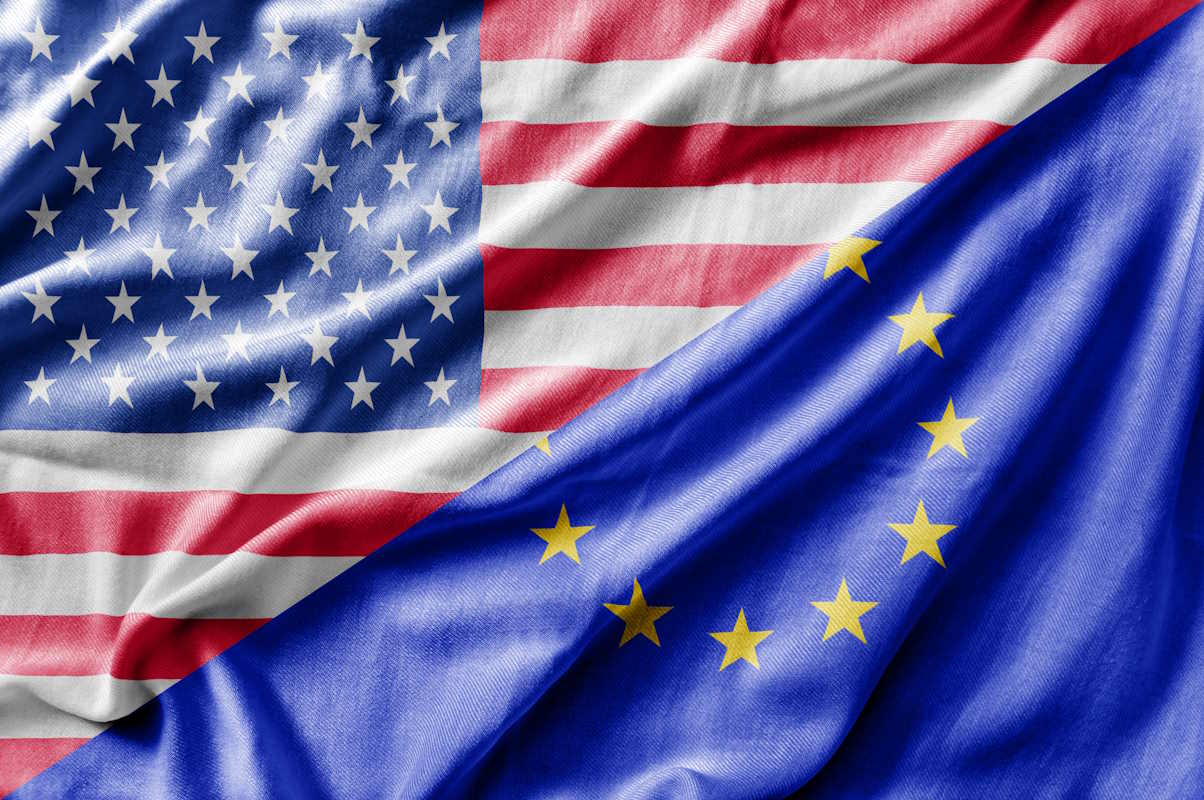US Homeland Security subcommittee members meet with European counterparts to boost collective cyber defense

The U.S. House Homeland Security Subcommittee on Cybersecurity and Infrastructure Protection Chairman Andrew Garbarino led a bipartisan Congressional Delegation (CODEL) to the Netherlands, Estonia, and the U.K. The team discussed with leaders their national cybersecurity approach and ways the countries can work together to strengthen information sharing and increase collective defense against cyber adversaries.
Garbarino, a Republican from New York, was joined by Eric Swalwell, a Democrat from California and Subcommittee Ranking Member; Rep. Rob Menendez, a Democrat from New Jersey and Subcommittee Member; and Dave Joyce, a Republican from Ohio and House Appropriations Subcommittee on Homeland Security Chairman.
The bipartisan delegation evaluated the DHS Cybersecurity and Infrastructure Security Agency (CISA) international partnerships with high-level officials and industry partners to assess their effectiveness.
In Amsterdam, the CODEL’s visit came on the heels of the release of the U.S. National Cybersecurity Strategy and amid the implementation of the Netherlands’ Cybersecurity Strategy 2022-2028. There are several areas of overlap amongst the pillars of both strategies, and the bipartisan CODEL discussed with Members of the Dutch Parliament and Officials from the Dutch government ways to further strengthen the implementation of each of the international strategies.
CODEL members heard in Tallinn about the collaboration between the Estonian Academy for Security Sciences and the U.S. Secret Service (USSS) on cybercrime enforcement and workforce training, which is key to combating malicious ransomware actors across the globe. The NATO Cooperative Cyber Defense Centre of Excellence (CCDCOE) offered a critical perspective on partnerships across NATO member nations.
The delegation met in London with CISA’s first attaché and CISA’s British counterpart, the National Cyber Security Centre (NCSC), to discuss the importance of continuing dialogue with ‘one of our closest allies in cybersecurity as we consider the latest developments in the realm, including Artificial Intelligence and cyber insurance.’
“After a series of productive meetings, it’s clear that America’s international partnerships are crucial to ensuring our nation’s cyber defense,” Chairman Garbarino said in a Monday media statement. “It was encouraging to hear the positive feedback of all three countries’ engagement with CISA, as well as their hopes to expand cooperation in the future. Our allies look to the United States for leadership on technology innovation, regulatory structure, and best practices for cyber resilience, as we know cyber threats are not bound by borders. Like the U.S., they face cyber threats from Russia and China, and these threats were at the forefront of our conversations.”
Garbarino added that from the lessons “we learned on this productive trip, this Subcommittee looks forward to continuing our bipartisan work and dialogue with our European allies to protect our critical infrastructure, expand the cyber workforce, and further CISA’s mission to increase collective resilience against the complex cyber threats of today.”
“There are no borders in cyberspace. Close collaboration with our most trusted allies is essential to securing our networks at home and our interests abroad,” Congressman Swalwell said. “As the lead Democrat on the Homeland Security Committee’s Cyber Subcommittee, I was proud to join my colleagues in discussing how to expand upon existing international partnerships that reduce risks to critical infrastructure and eliminate ransomware. I look forward to building upon CISA’s global presence to strengthen cooperation with our allies.”
“In the current evolving threat landscape, it was important to participate in this bipartisan delegation to evaluate and strengthen CISA’s work to protect the United States by collaborating with our partners in Europe,” Congressman Menendez said. “This trip was an opportunity to meet with officials in the Netherlands, Estonia, and the United Kingdom to support and expand our international cybersecurity cooperation. I look forward to continuing our work on the Cybersecurity and Infrastructure Protection Subcommittee to keep our critical infrastructure and the American people safe.”
“One of my priorities as Chairman of the House Appropriations Subcommittee on Homeland Security is to strengthen our nation’s cybersecurity and safeguard our critical infrastructure, especially against foreign adversaries,” Congressman Joyce said. “Joining the congressional delegation to Europe led by Chairman Garbarino allowed me the opportunity to meet with key international stakeholders, learn more about CISA’s work with international partners, and inform how we fund CISA’s international cybersecurity capacity building effort. Cyber-attacks significantly impact our economy and national security in an increasingly connected world, so I will continue to work to enhance our cybersecurity defenses.”
Last month, the EU-NATO Task Force presented a final assessment report that maps out the current security challenges and identifies four key sectors of importance, including energy, transport, digital infrastructure, and space. The report recommends strengthening critical infrastructure resilience and deepening EU-NATO cooperation through information exchanges, alternative transport routes, and security research ties.










